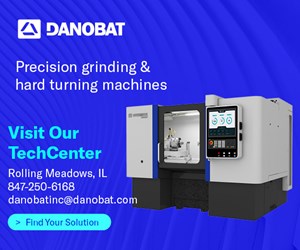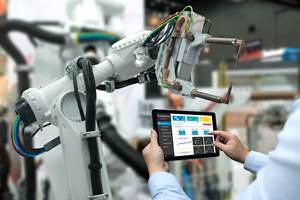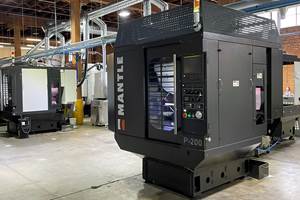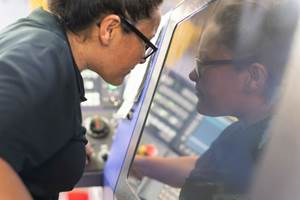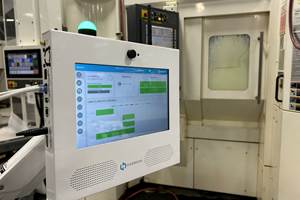School Shops Aren't What They Used To Be
I have fond memories of my junior and senior high school shop classes. These classes helped me realize that I had the capability to build things and taught me how to be patient when working on a project.
I have fond memories of my junior and senior high school shop classes. These classes helped me realize that I had the capability to build things and taught me how to be patient when working on a project. This has carried over into just about everything that I do today. The classes gave me self-confidence.
In a typical industrial arts metal or wood shop, students were exposed to design, materials, machine operation, fabrication and finishing. The projects were typically oriented toward incorporating the aforementioned, and they were taken home and proudly shared with parents. I still use the tie rack that I made in seventh grade wood shop.
In today’s schools, most of the industrial arts shops have been transformed into technology laboratories. The most noticeable difference between the shop of yesterday and the lab of today is the presence of personal computers. This is really no surprise, as all areas of our lives have also realized this difference. Another difference is that in many middle schools, technology education is a subject that all students take. This was not the case when I was in school; back then, the boys took shop and the girls took home economics.
Manufacturing has changed in much the same way. Technology has advanced rapidly, and the skill sets of workers are different from what they were 20 to 30 years ago. The change in school technology laboratories allows students to get a survey experience of many technologies, including manufacturing, graphic design, power and transportation, aviation, biomedical, and communications, to name a few. Students are also working in pairs and teams, and there are efforts to link what they are learning to educational standards. This environment is excellent for applying academics and cementing concepts.
Youth who have been entering school for the past decade have not known life without personal computers and handheld video games. They have the innate ability to deal with a full computer screen of information, rather than just focusing on one part of the screen. The transition has been made from analog thinking to digital thinking. Youth view technology differently from how adults view it. Adults may use a computer application with a goal of learning; for kids, learning is the application. The ease with which youth embrace new technology is fueling the multimedia explosion. It has been found that the best learning comes from passion instilled by teachers and felt by students. This passion is invoked by students applying what they have been exposed to academically in a technology education lab. They understand academics because they have an opportunity to create a healthy learning environment in which to apply the knowledge.
In today’s middle schools, there are thousands of CAD/CAM/CNC modules in which students get a chance to design a part, create a tool path and machine the parts. While the intention is not to make machinists out of every student who goes through the module, there is an opportunityfor them to experience the process of design and manufacture, as well as relate math and science from other classrooms. Additionally, the use of technology to solve problems and working together in teams exposes students to skill sets that are critical to success later in life and add benefit to future employers.
The use of technology in the “school shops” of today provides interactive technology that enables students to learn faster and motivate them to explore new subjects. This advancement is affecting the future workers of tomorrow, your future employees. It is important to be aware of what is going on in your local schools and support the continued use of technology in those schools.
Related Content
How to Grow the Business with Real-Time Job Status Data
ERP systems that focus on making data more accessible can improve communication within a shop, reducing wasteful errors and improving capacity.
Read MoreIn Moldmaking, Mantle Process Addresses Lead Time and Talent Pool
A new process delivered through what looks like a standard machining center promises to streamline machining of injection mold cores and cavities and even answer the declining availability of toolmakers.
Read MoreWill the “Great Resignation” Become an Opportunity for Manufacturers? Get Ready for the Returning 3 Million
The Great Resignation will become a Great Reapplication when employees currently able to stay out of the workforce return to it looking for something better. Machining employers that are already evaluating candidates for fit, without demanding specific skills coming in, might be positioned well to draw upon this wave.
Read MoreCan Connecting ERP to Machine Tool Monitoring Address the Workforce Challenge?
It can if RFID tags are added. Here is how this startup sees a local Internet of Things aiding CNC machine shops.
Read MoreRead Next
The Cut Scene: The Finer Details of Large-Format Machining
Small details and features can have an outsized impact on large parts, such as Barbco’s collapsible utility drill head.
Read More3 Mistakes That Cause CNC Programs to Fail
Despite enhancements to manufacturing technology, there are still issues today that can cause programs to fail. These failures can cause lost time, scrapped parts, damaged machines and even injured operators.
Read More







